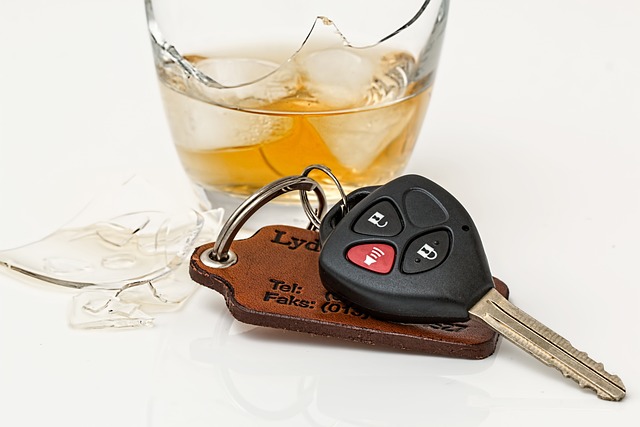
- Marquette321 N Front St
Marquette, MI 49855 - Munising202 Elm Ave, Ste 5
Munising, MI 49862

A drunk driving conviction could have severe consequences on your life. It could result in driver’s license suspension, hefty fines, spiking insurance rates, and difficulty getting insurance. A DUI conviction also impacts your reputation. Depending on the circumstances, a conviction for impaired driving could cause you to lose a job or professional license and might prevent you from getting a job or professional license in the future. If you were arrested and charged with driving under the influence of alcohol or drugs, seek immediate help from a Marquette County DUI lawyer. With help from a capable defense lawyer, you could minimize the adverse effects of this type of charge.
Have you been charged with driving while under the influence of drugs or alcohol in the state of Michigan? If so, you need a competent DUI lawyer in your corner who can fight your charges at every turn. We are here to help ensure you retain your license and stay out of jail.
Driving under the influence (DUI) is the phrase most people use to describe drunk or drug-impaired driving. However, there are several different charges a driver in Michigan could face, and none of them are officially called DUI. A local defense attorney could explain the implications of a specific impaired driving charge in a particular case.
Michigan Vehicle Code §257.625 establishes an offense called Operating While Intoxicated (OWI) which refers to driving a motor vehicle or boat with a blood alcohol concentration (BAC) that exceeds .08. When the driver is under the age of 21, they could be charged with OWI if even a trace of alcohol is detected. Anyone operating a vehicle is presumed to consent to a chemical test to determine their BAC.
First convictions of OWI could lead to incarceration for up to 93 days, fines up to $500, a 30-day license suspension, up to 360 hours of community service, and six points on the driver’s license. If the driver’s BAC exceeds 0.17, penalties are enhanced. An OWI conviction within seven years of a prior conviction could result in up to one year in jail, a $1000 fine, forfeiture of the vehicle, and five-year license revocation.
If a police officer believes someone is too impaired to drive safely, they can charge the driver with Operating While Visibly Impaired, or OWVI. The charge does not depend on the driver’s BAC. Instead, it depends on the officer’s observations of their behavior. If an officer believes a driver is unable to operate their vehicle safely because of drug impairment, they could also charge the motorist with an OWVI.
Conviction of a first OWVI could mean a jail sentence of up to 93 days, a $300 fine, and community service for up to 360 hours. A conviction also results in four points on one’s driver’s license. Subsequent convictions for any impaired driving offense could lead to misdemeanor charges. However, a third offense could be treated as a felony, which carries a prison sentence of up to five years in addition to other penalties.
An Operating With the Presence of Drugs (OWPD) charge could result from driving under the influence of certain illegal drugs. OWPD charges might apply if the driver is using any Schedule 1 drug or cocaine, which is a Schedule 2 drug.
Schedule 1 drugs include marijuana, heroin, ecstasy, khat, and many other common street drugs. There is no legal limit; a trace of any Schedule 1 substance or cocaine could support OWPD charges if the arresting officer believes the driver is drug-impaired.
Penalties upon conviction of OWPD include up to 93 days in jail and a $300 fine for a first offense, up to 360 hours of community service, and a 30-day driver’s license suspension. An OWPD conviction results in six points on an individual’s driver’s license.
Impaired driving offenses, such as Operating While Intoxicated (OWI), Operating While Visibly Impaired (OWVI), or Operating With the Presence of Drugs (OWPD), carry severe penalties. Convictions can lead to heavy fines, license suspension, and even jail time. Therefore, it is essential to mount an aggressive and thorough defense. A skilled Marquette impaired driving attorney can help ensure that the defendant’s rights are protected, and challenge the prosecution to prove every element of their case beyond a reasonable doubt.
One critical area of defense is scrutinizing the procedures police followed during the arrest and evidence collection. Law enforcement must follow strict protocols when conducting traffic stops, field sobriety tests, and chemical tests (such as blood, breath, or urine tests). A Marquette attorney can carefully examine whether the arresting officer had probable cause to stop the vehicle or administer a sobriety test in the first place. If the initial stop or subsequent procedures violated the defendant’s constitutional rights, such as improper administration of Miranda warnings or lack of probable cause, a defense lawyer could file a motion to suppress any unlawfully obtained evidence. Suppression of key evidence could significantly weaken the prosecution’s case or lead to dismissal.
The defense could also attack the reliability of the chemical tests used to determine intoxication. Breathalyzers, blood tests, and urine tests are subject to strict regulations concerning calibration, maintenance, and the timing of the tests. Any mishandling of these tests, improper specimen collection, or delays in testing could result in inaccurate results. A skilled attorney may retain toxicology experts to examine whether the results of these tests meet the necessary legal standards. For example, errors in blood sample storage or chain of custody issues could render chemical test results inadmissible.
In cases where the charge is OWVI or OWPD, the prosecution must prove that the driver’s ability to operate the vehicle was visibly impaired by alcohol or drugs. A seasoned Marquette attorney could challenge the credibility of the arresting officer’s observations regarding the driver’s performance. For instance, the officer may cite erratic driving or poor coordination during field sobriety tests as evidence of impairment, but these signs could have other explanations, such as fatigue, anxiety, or medical conditions. An experienced attorney could cross-examine the officer to reveal inconsistencies or inaccuracies in their testimony and seek to introduce alternative explanations for the driver’s behavior.
An impaired driving conviction could have a significant impact on many areas of your life for years to come. You owe yourself and your family the most vigorous defense possible. Contact a Marquette DUI lawyer as soon as possible after your arrest. With the help of a compassionate advocate, you could avoid some of the harsh consequences of an impaired driving conviction.
Our Blog Posts
Read More Blogs

© 2026 Berger Law.
All rights reserved | Attorney Advertising